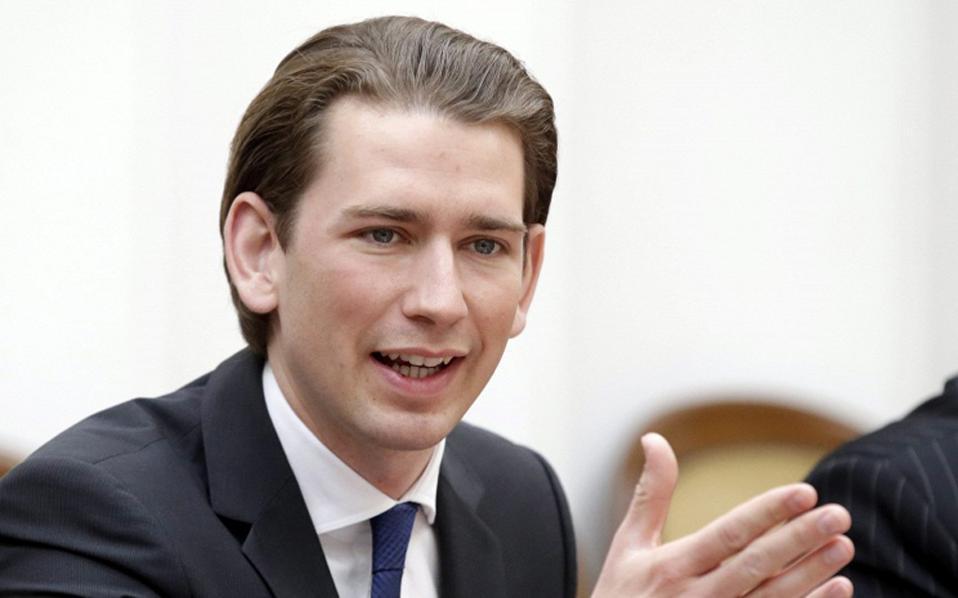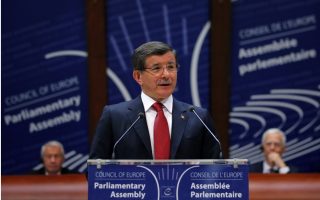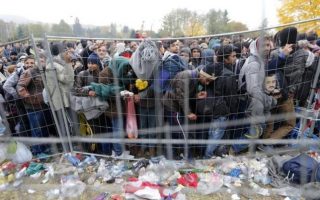Tactics of a young mind

Austria’s foreign minister, Sebastian Kurz, is a 30-year-old politician. He took over his portfolio three years ago. Back then, he became Austria’s youngest government minister since the republic’s foundation. His passion for politics was so great that although he started studying law at the University of Vienna, he left before getting his degree.
In an interview published on Monday, the Austrian foreign minister said that Europe “does not need a deal with Turkey to stop the migration crisis.” “We must not give in to blackmailing and we do not need a plan B, but a decent plan A. We need a strong Europe that protects its own external borders,” Kurz said.
He said the EU should follow Australia’s example and process migrants offshore to reduce arrival numbers, which would effectively turn Greece’s Aegean islands into migrant camps. Needless to say, Kurz’s ideas leave a lot to be desired in terms of European partnership and solidarity.
Western Europe should be grateful to the Habsburg Empire, which stopped the advance of the Ottomans, who twice tried to take Vienna – first in 1529, when Suleiman the Magnificent laid siege to the city, and a second time in 1683 under Mehmed IV.
The truth, however, is that what we are dealing with today is the Austria of Kurz, not the Austria of the Habsburgs, who for centuries successfully handled the presence of different ethnic groups on their territory until Europe’s ancien regime collapsed after the end of World War I (which was followed by an even more disastrous World War II).
The states of Europe eventually managed to put together a new Empire, known as the European Union. The project was based on popular will, not military conquest. Being the former core of a former empire, Kurz’s Austria ought to know that a system begins to decline when the center starts to neglect the periphery. This has nothing to do with who is in charge of Greece at any given moment.
Perhaps we are making the mistake of overestimating Kurz. The Austrian minister does not have an imperial attitude in its contemporary version, i.e. the one displayed by the EU. On a domestic level, he is battling against the country’s far-right presidential hopeful, Norbert Hofer, in the runoff vote on October 2. Kurz is resorting to far-right rhetoric on the migration crisis and Turkey as if the revival of nationalism in Europe were simply a reaction to the presence of migrants and not the result of a more profound demand to reclaim national sovereignty on all levels.
In his mind, Kurz is engaging in some sort of pan-European high politics. He is still young, we should show some understanding.





